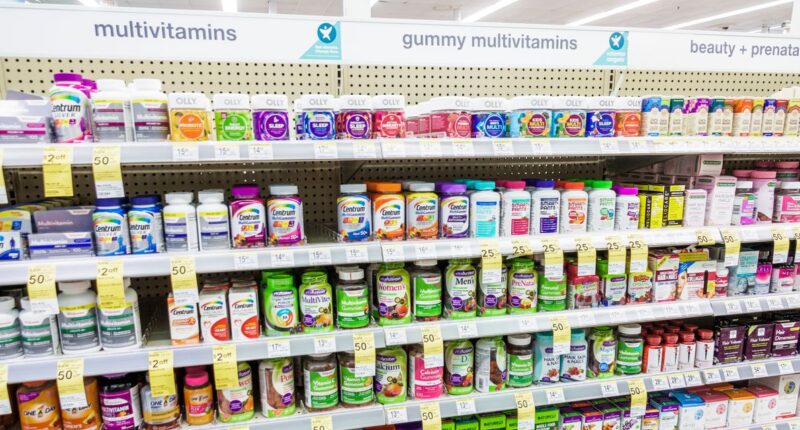
Federal Trade Commission guidelines for advertising health-related products just got a big refresh—and they could be a rude awakening for marketers making overzealous claims about products such as supplements or health apps.
The agency in late December published its “Health Products Compliance Guidance” to update and replace its 1998 guidance titled “Dietary Supplements: An Advertising Guide for Industry.” The FTC’s new publication is intended to help brands ensure that claims about the benefits and safety around health-related products are truthful, supported by science and aren’t misleading. The agency said in an accompanying document that the legal fundamentals largely remain unchanged, but seek to convey some key revisions.
Some experts say the guidelines are a substantial update to the previous iteration: They underline that marketers must provide more concrete substantiation for claims and make it clear that brands can’t make vague claims to skirt the rules. Some also say the guidelines may result in making marketing more difficult for direct-to-consumer and other small businesses that may not have the budget to conduct the kind of research required to make certain health claims.
The guidelines also offer an important reminder that ad agencies, expert endorsers and others engaged in marketing products making health claims are responsible for following the rules, according to Clair Jones, founder of Loud Bird Marketing, which works with supplement companies, health coaches, wellness practitioners and other companies in the health industry.
The FTC guidelines say all parties participating in marketing or promotion directly or who have authority to control those practices have an obligation to ensure those claims are presented truthfully and with adequate support.
While the new guidelines say they don’t have the force or effect of law and are intended as business guidance, the FTC said they are intended to help advertisers comply with the basic tenets of the agency’s law.
Here is what marketers should know about the new guidelines and what they will mean for the industry.
What falls under the new guidance publication?
The FTC said in a document that the change in the title of its publication is meant to make clear that its guidance applies across the board to all health-related claims, not just for supplements, as had been implied by the old title.
The agency noted that since 1998 it has settled or adjudicated more than 200 cases involving false or misleading advertising claims about the benefits or safety of dietary supplements and other health-related products including foods, homeopathic products, health equipment and health-related apps.
Chris Cole, partner and chair for advertising, marketing and promotions at Katten Muchin Rosenman LLP, said the broader purview represents a big category of products including anything from dietary supplements to air filters.
“They consider anything that has some claimed benefit for human health to be a health product,” he said. “Over the years, there’s been some mission creep, the FTC has sought to apply some of the same standards to other types of products [beyond supplements]. And I think this just sort of formalizes the fact that it’s going to do that.”
What kind of substantiation is needed to make health claims?
The FTC’s updated guidelines include an expanded section emphasizing a rule that the agency expects companies to support health-related claims with “high-quality, randomized, controlled human clinical trials.”
Some experts said the change may be the most significant—and controversial—piece of the updated guidance, given the additional work that brands may have to do to make claims.
“It’s a very expensive thing to do. It’s difficult to do. It seems [like] overkill for a lot of the more routine types of claims…and I don’t know that it’s really necessarily that helpful in every case,” Mr. Cole said. “The FTC has tried to impose a really draconian view here.”
Robert Freund, an attorney focused on advertising and e-commerce issues, and founder of Robert Freund Law, said the FTC’s previous position was more flexible. For instance, a claim about a vitamin C drink helping with immunity might not have previously warranted human clinical trials. “But under the new guidance, their position is ‘That is what we expect for every type of health claim across the board,’” he said.
And the testing methodology will also be scrutinized. The FTC said its revised guidance takes a deeper dive into quality research, drawing on its long legal tussle with POM Wonderful. In 2013, the FTC found that POM and its principals deceptively advertised that its products could treat, prevent, or reduce the risk of heart disease, prostate cancer and erectile dysfunction—and were clinically proven to have such benefits. The ruling was eventually upheld by the D.C. Circuit, then the Supreme Court declined to review that ruling in 2016.
Can marketers make so-called vague claims?
Some marketers have relied on vague claims, such as saying that a product “may” have a claimed benefit or “helps” achieve something. The FTC clarifies that “vague qualifying terms” are inadequate. It adds that consumers are likely to interpret modifiers such as “promising” or “pilot” as positive attributes, instead of substantial disclaimers about the state of scientific evidence behind a claim.
This may change how some marketers interpret their responsibility about making certain claims.
Mr. Cole said many advertisers have gotten in the habit of putting “helps” in front of a claim—such as “helps reduce depression”—and believe that protects them from rules around making drug claims.
“That’s not necessarily the case,” he said. “The FTC I think makes that clear, [it is] not going to give you a free pass just because you put the word ‘helps’ in front of it. That should send some shivers down the spine of a lot of marketers.”
What will this mean for the industry?
While the new guidelines are significant, much of what happens will depend on how the FTC decides to enforce them, Mr. Cole said.
“Typically, when we see these new guides come out, they do bring a few enforcement cases pretty quickly—kind of send a message [to say], ‘Hey, we’re serious about this.’ And I wouldn’t be surprised to see that,” he said.
SHARE YOUR THOUGHTS
Marketers, what questions do you have about the FTC’s new guidance? Join the conversation below.
Yadim Medore, founder and CEO of dietary supplement-focused consulting firm Pure Branding Inc., said the new guidelines will raise the bar for the kind of research needed for companies to make health claims. That would help bolster the integrity of the industry, he said.
Mr. Freund, the attorney, said every business or marketer operating in the space should examine all of their advertising claims to see whether the language or substantiation needs to be updated.
What will this mean for competition in the industry?
Experts said the clarified rules around substantiation could prove more difficult for upstart companies trying to market products in the health field.
Mr. Medore said the updated guidance may create a barrier to entry for emerging brands with multi-ingredient formulas, since he said it suggests they may need to invest in clinical trials on finished products, versus relying on claims from research conducted by individual branded ingredient suppliers.
That kind of research is often difficult for smaller companies that might not have that funding, Mr. Freund said. “Anytime you have this more burdensome requirement, it’s going to affect smaller businesses more than larger ones,” he said.
Write to Megan Graham at [email protected]
Copyright ©2022 Dow Jones & Company, Inc. All Rights Reserved. 87990cbe856818d5eddac44c7b1cdeb8







